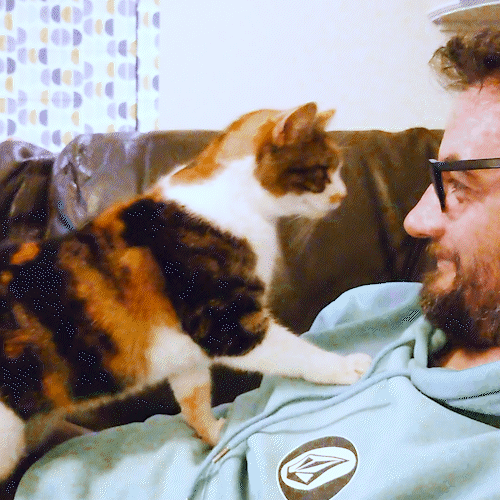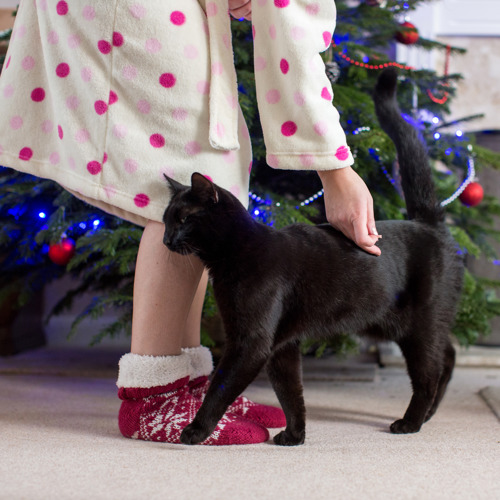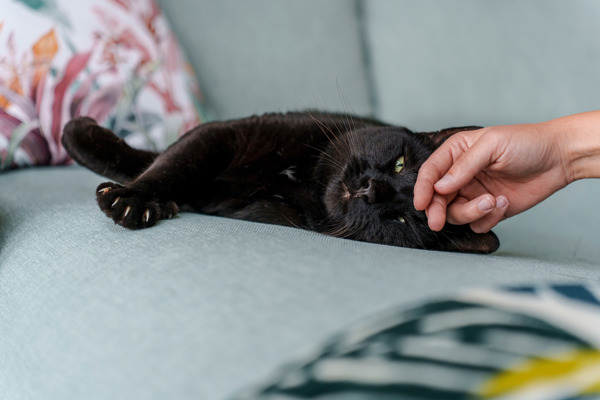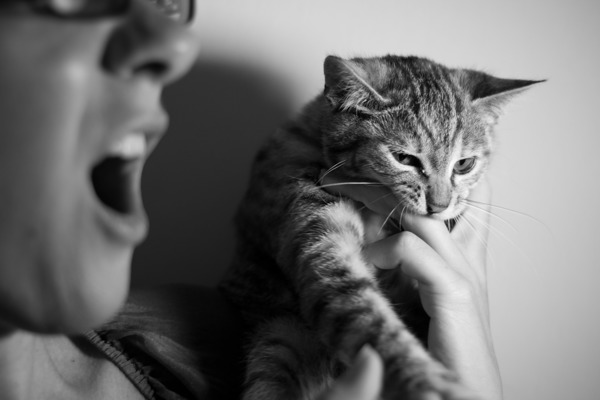Discover what it means when a cat is rubbing their face, head or body on you
If you’ve ever had a cat head-butt you in the face or weave around your legs as you go about your day, you may have wondered what this peculiar rubbing behaviour means.
It might seem like they are trying to bruise your nose or trip you up. But it’s more likely that your cat is being friendly. They are showing they like you in their own cute way.

When a cat is happy, rubbing against you may also be accompanied by purring. Or even dribbling if the cat is particularly enthusiastic.
Why does my cat rub against me?
There are a few different meanings for a cat rubbing against you...
- They’re saying hello. Rubbing their head or body on you is often a friendly greeting from a cat, meaning they are happy to see you. You might notice your cat do this when they first see you after some time apart. Friendly stray cats may also rub against you to say hello when they see you on the street. To find out how to respond to this greeting, take a look at our guide on how to pet a cat. Cats who are friendly with each other and in the same social group will also sometimes rub against each other as a greeting. Find out how to tell if cats are in the same social group.
- They’re marking you as safe. Cats have scent glands on their cheeks, chin, the top of their head and at the base of their tail. These scent glands produce pheromones. When a cat rubs these areas against you, they are transferring these pheromones onto you. Being able to smell these familiar pheromones on you helps the cat know that you can be trusted. It marks you as part of their territory. These scents don’t last forever though. The cat will need to regularly top them up by rubbing against you some more. Cats in the same social group will also transfer pheromones onto each other to create a communal scent. It also helps them identify any intruders.
- They want attention. Head-butting you and rubbing against you is an effective way for a cat to get your attention. They may do this when they want something. It could be that they want fuss, food, playtime or to be let outside. If you respond by giving them what they want, they will learn that this method of getting your attention works. They are likely to keep doing it again and again. This is fine for fuss and playtime, but be careful about always giving in to your cat’s demands for food. Stick to a daily allowance of food. If they pester you for more, try distracting them with play or fuss to avoid weight gain. Find out more about feeding your cat. If your cat rubs against you to ask to be let outside, you might want to invest in a cat flap. Unless you’re happy to be their personal doorperson.
- They’re ready to mate. When female cats who are not neutered have a ‘heat cycle’ (meaning they are ready to breed) they can become particularly affectionate. They may rub against you or other objects more than usual. They may also become restless, more vocal, and lift their tail to present their rear end in an attempt to attract a mate. Find out more about cat reproduction and about getting your cat neutered.
My cat is rubbing against me a lot, should I be worried?

Rubbing against people, objects and other cats is a normal behaviour for cats. It's usually nothing to worry about. But if this is a new behaviour for your cat, of if they have started rubbing more often or more aggressively, speak to your vet. They can find out if there is a medical cause. If your cat is excessively or aggressively rubbing against you or other objects, this could be a sign of:
- allergies
- fleas
- ear infection
- feline hypersensitivity disorder
- neurological (brain) disorders
Why does my cat rub against me then bite me?
If your cat bites you when they rub against you, it could be that they are overexcited. Cats are natural hunters. If they don’t have appropriate prey, such as cat toys, to pounce on, they might misdirect this behaviour onto you instead. This type of biting is usually gentle but can still be painful. Find out more about why cats bite and what to do if a cat bites you.


